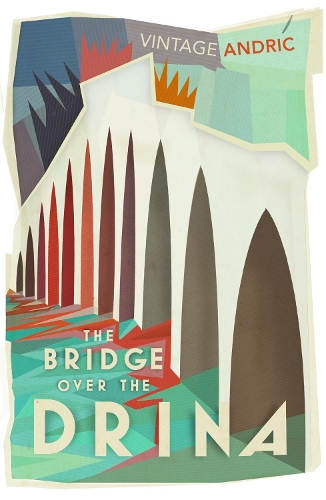
The Bridge Over the Drina
(Paperback)
Available Formats
Publishing Details
The Bridge Over the Drina
By (Author) Ivo Andric
Vintage Publishing
Vintage Classics
2nd November 2023
5th November 2026
United Kingdom
Classifications
General
Fiction
891.8235
Physical Properties
Paperback
416
Width 129mm, Height 198mm, Spine 30mm
350g
Description
A vivid depiction of the suffering history has imposed upon the people of Bosnia from the late 16th century to the beginning of World War I, The Bridge Over the Drina won Andric the Nobel Prize for Literature 'By the time I finished it something in me had shifted forever' Elif Shafak, New Statesman There is no hero or heroine in this book. Instead, there is a bridge, and there are the characters that have loved it, hated it, built it or tried to destroy it. Ivo Andric, winner of the Nobel Prize in Literature, grew up beside it. For more than four hundred years a bridge has spanned the River Drina in Bosnia. This novel is its chronicle. Radisav, a workman, tries to hinder its construction and is impaled alive on its highest point. Beautiful Fata leaps from its parapet to escape an arranged marriage. Milan, inveterate gamble, risks all in one last game on it. Spanning generations, nationalities, creeds, and a great stretch of green water, the bridge bears witness to the lives played out on it, connections forged and centuries of conflict.
Reviews
In high school, one Saturday, I started reading a book by the Yugoslav novelist Ivo Andric: The Bridge on the Drina. By the time I finished it something in me had shifted forever * New Statesman *
Despite its scale, what makes the book extraordinary is the tender insight with which it treats these individual lives, whether Catholic, Orthodox, Muslim or Jewish * Independent *
Perhaps the most widely translated Yugoslav book since the last war is Ivo Andric's The Bridge on the Drina... No better example could have been selected with which to introduce the American public to contemporary Yugoslav prose * New York Times *
The best kind of fictionalised history * Daily Telegraph *
The wealth and variety of its fictional elements carry it so far beyond the confines of a straightforward novel, it cannot be limited to such a description. It puts one in mind of a collection of tales, but no collection of tales (not even A Thousand and One Nights or Washington Irving's stories) ever possessed such a unity and continuity of theme * Le Monde *
Author Bio
Ivo Andric was born in 1892 in Travnik, Bosnia. His parents were Croat and he grew up alongside Orthodox Christians, Muslims and Roman Catholics in Visegrad, the town on the banks of the Drina in which the book is set. Andric served a Yugoslav diplomat until 1941, when he was placed under house arrest in Belgrade by the occupying Germans, and he turned to writing. In 1961, he was awarded the Nobel Prize in Literature. Andric died in 1975.
